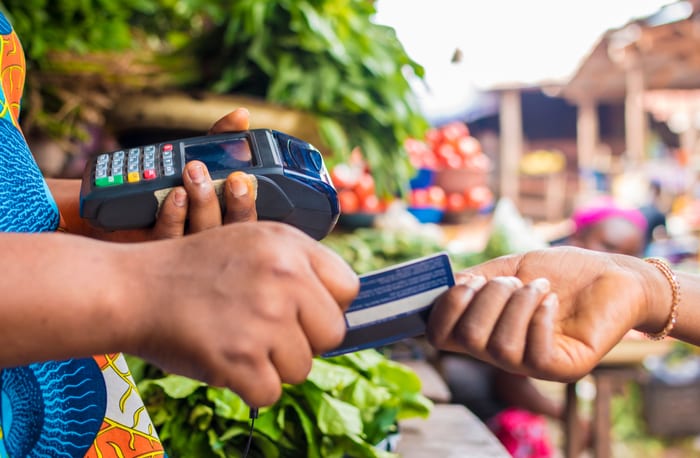advertisement
Fraud Threatens Africa’s Digital Payment Revolution – What Needs To Happen Next

With Africa championing digital transformation and new technologies at a fast rate, Instant Payment Systems (IPS) are also being introduced to transform financial transactions across the continent.
IPS have proven to be a key driver of digital payments and the key reason behind the rise in transaction volumes. However, as adoption grows, so does the risk of fraud, which has become a significant threat to financial inclusion. According to the 2024 State of Inclusive Instant Payment Systems (SIIPS) report, fraudulent activities in mobile transactions have surged at a rate disproportionate to overall growth, undermining trust in digital payments.
The SIIPS report highlights that between 2019 and 2020, fraudulent mobile app transactions globally increased by 83 percent, while mobile transaction volumes grew by only 38 percent. This widening gap signals an urgent need for stronger security measures and end-user education.
advertisement
Why Fraud Persists in instant payments
The lack of robust Know Your Customer (KYC) processes and insufficient recourse mechanisms leave many users vulnerable.
“The most cost-effective way to combat fraud is prevention, but quick recourse is just as vital. If users experience fraud and have no way to recover their money, trust in digital payments is eroded,” said Jacqueline Jumah, Director of Advocacy & Development at AfricaNenda.
Fraudsters often exploit low digital literacy levels among new users, convincing them to share sensitive information or unknowingly authorize transactions. The SIIPS report emphasizes that this is especially prevalent in areas where first-time digital payment users have limited exposure to financial education programs.
advertisement
Enhancing Trust and Security in IPS
To ensure that IPS continue to advance financial inclusion without exposing users to undue risks, stakeholders must prioritize security enhancements. Strengthening Know Your Customer (KYC) processes, implementing two-factor authentication (2FA), and establishing shared IPS KYC facilities and data sharing mechanisms can reduce identity theft and fraudulent transactions.
“Fraud prevention requires a multi-layered approach. IPS operators must enforce higher security standards while also ensuring users are aware of the risks and know how to protect themselves,” said Serge Moungnanou, Partnership, Advocacy, and Capacity Building Specialist at AfricaNenda.
IPS providers can also improve recourse mechanisms by establishing fast-response dispute resolution systems. Many fraudulent cases go unresolved due to the lack of a clear process for reversing unauthorized transactions, leaving affected users with no means of recovering their funds. By defining customer service standards within IPS scheme rules, Payment Service Providers (PSPs) can be held accountable for offering timely and effective support to users dealing with fraud-related issues.
advertisement
Regulatory Interventions and Policy Recommendations
Regulators play a crucial role in addressing fraud risks within IPS. Countries like Kenya and Nigeria have taken steps to mandate fraud reporting standards and enforce stricter compliance requirements for PSPs. However, more needs to be done at a continental level to harmonize regulations and ensure that fraud mitigation strategies are consistently applied across different IPS platforms.
Interoperability also presents both a challenge and an opportunity for fraud prevention. While increased interoperability expands financial access, it also creates potential loopholes that fraudsters can exploit. To address this, experts say regulators should work towards harmonized fraud monitoring frameworks that enable real-time tracking of suspicious activities across interconnected IPS platforms.
“The success of IPS hinges on user confidence. Strengthening regulatory frameworks, ensuring proper risk-based KYC, and fostering industry-wide collaboration are key to reducing fraud while maintaining financial inclusion,” said Sabine Mensah, Deputy CEO at AfricaNenda.
A Path Forward for Secure Digital Payments
The SIIPS report maintains that IPS will continue to be a cornerstone of Africa’s digital economy, offering millions access to faster and more efficient financial services. To sustain growth, IPS stakeholders must take proactive measures to secure digital transactions while maintaining ease of use.
The SIIPS report recommends that IPS operators and regulators prioritize fraud awareness campaigns, technical improvements in security protocols, and enhanced recourse mechanisms to mitigate fraud risks. By implementing these measures, Africa can ensure that IPS continues to drive financial inclusion without compromising user safety.